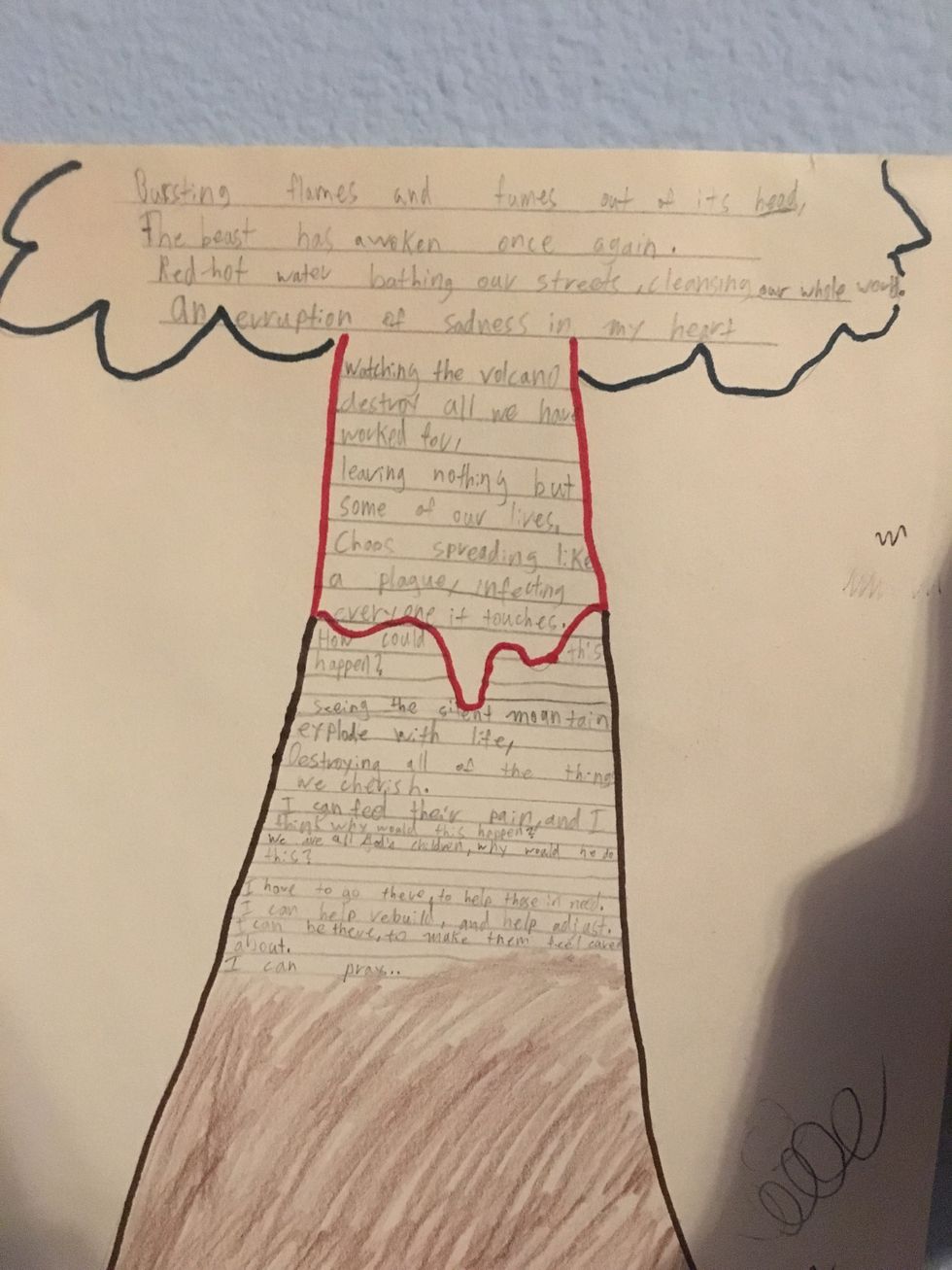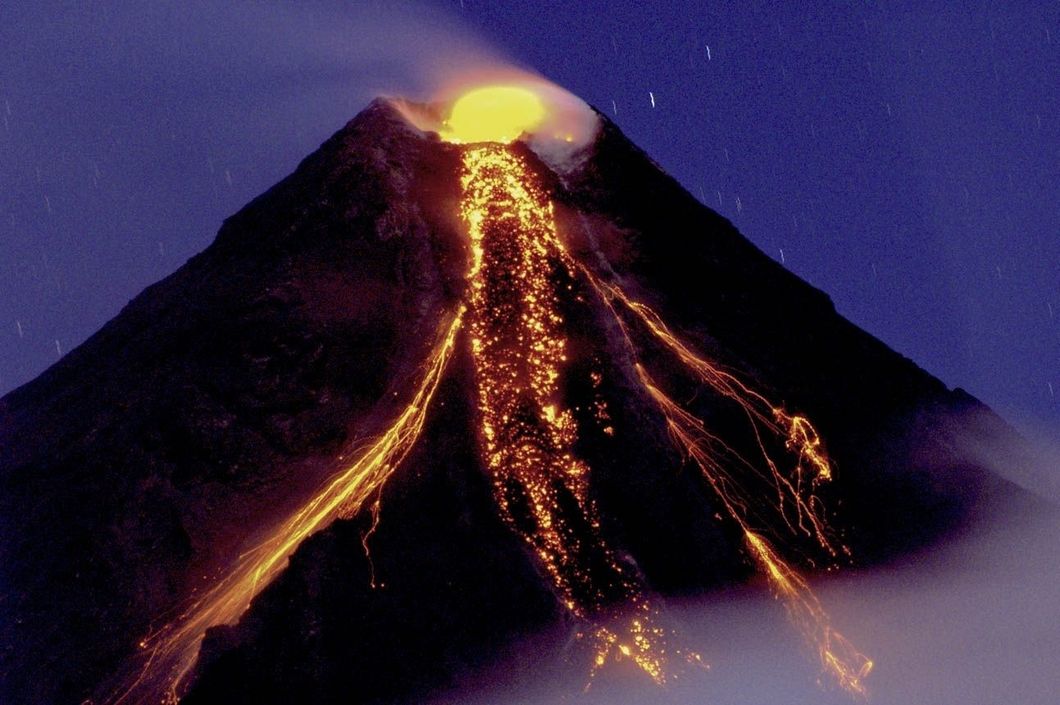I have always had a problem throwing things out. When the end of a school year came and I had mountains of graded papers and assignments, I would just shove them into my desk and leave them there until I opened the drawer again the next year to put even more trash in there. After cleaning my room before I left for college, I found all of the trash that I should have thrown out, but instead of just doing it, I looked through the work, mostly to laugh at how easy it seems now when then I thought it was difficult. I came across a very poor drawing of a volcano with a poem written inside of the mountain. I passed it off to my friend, Will, to show how my drawing skills might have actually decreased over time. Will laughed at that and then he read the poem, expecting it to be simple writings about how cool a volcano erupting looks, but instead read a darker story about the devastation volcanoes can cause. I don't remember if I knew about the volcano that destroyed Pompeii at the time because it was 8 years ago and I was 11 years old, but if I didn't, then I accidentally wrote a poem about it. Anyways, here it is:

Bursting flames and fumes out of its head,
The beast has awoken once again.
Red-hot water bathing our streets, cleansing our whole world.
An eruption of sadness in my heart watching the volcano destroy all we have worked for,
leaving nothing but some of our lives.
Chaos spreading like a plague, infecting everyone it touches.
How could this happen?
Seeing the silent mountain explode with life,
destroying all of the things we cherish.
I can feel their pain, and I think why would this happen?
We are all God's children, why would he do this?
I have to go there to help those in need,
I can help rebuild, and help adjust.
I can be there to make them feel cared about
I can pray...
The religious themes of the poem come from the fact that I went to Catholic grade school, shout out Prince of Peace in Plano. I guess even at a young age, I was curious about why suffering occurred while God was all powerful and therefore able to prevent it. Since then, I've had many explanations that God allows this to happen because God loves us and wants us to have free will, and I still haven't decided if I accept that answer. Another thing that I noticed is that I refer to God as "he," which now I have consciously stopped doing. When giving God a human pronoun, we are reducing a supposedly all powerful being to a human, which would be disrespectful should God exist.
The real reason that I like this poem is that it was the first time I did something in English class that I was proud of. As background, in grade school I was good at most things except for writing. I despised writing. Since that time though, my love for writing and reading has grown exponentially, and I believe that this poem is in large part to thank for that. It marks a pivotal moment in my life. Also, it marks one of the first times that I saw how destructive and dangerous explosions can be, while when I was younger I saw them simply as a spectacle.
The main reason that I really appreciate this poem is the last stanza, although I would make one small change. I love the fact that I listed all of the proactive things I could do to help this fictional town that was ravaged by this seemingly "silent mountain." If I could go back, I would move the last line of the poem to the beginning of the last stanza. I would do this because, throughout the poem, I doubted God's efficacy to help or save those who worship God, and having the last line laud the power of prayer seems to counter that point. If I put it at the beginning, then the message of the poem would be about taking action to make the world a better place, instead of relying on faith. This would go against the modern day message of "thoughts and prayers" that many people share after a tragedy and promptly forget about the awful thing that happened. Don't get me wrong, it is pretty easy to take action AND also pray, but having prayer anchor the end of this poem seems dishonest to what I think the message is.
I wish I could go back in time and talk to the young kid who wrote that, discuss the meaning of the poem and simply interact with that version of myself. Sadly, I know that's impossible, but at least I can appreciate this piece of work for the pivotal role it played in my life.



















